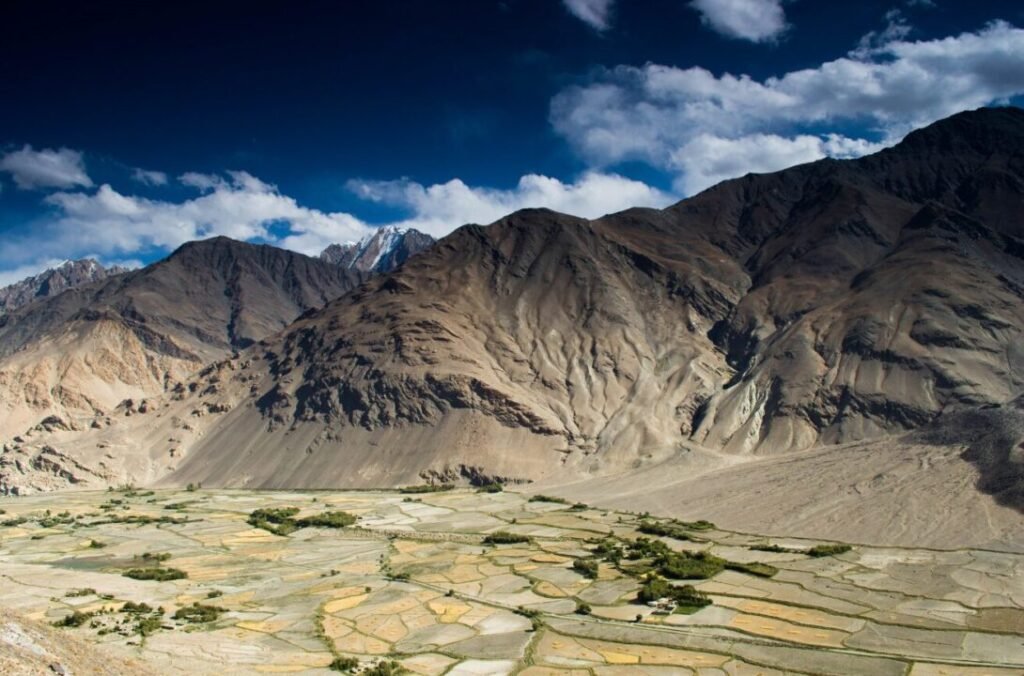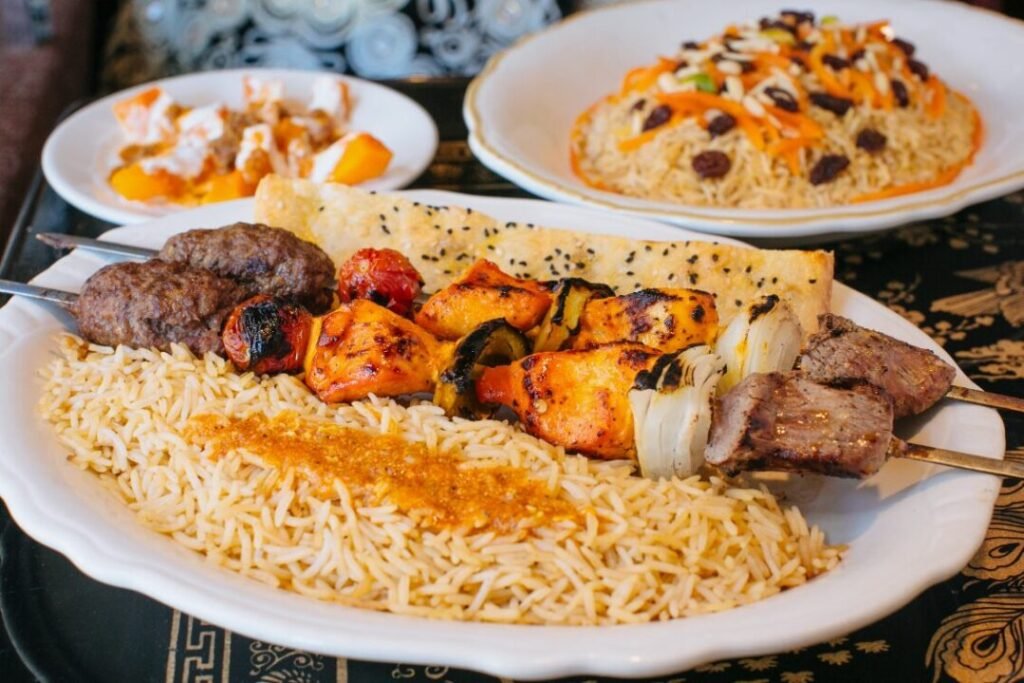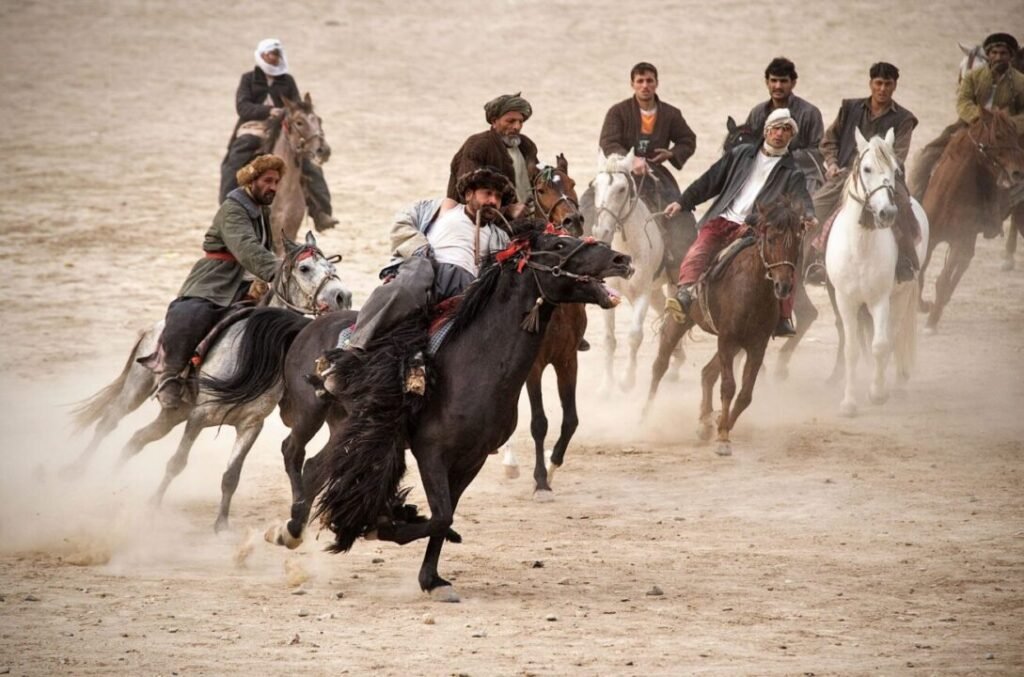You might think you know Afghanistan, a country often in the headlines, but there’s much more than meets the eye.
How about a journey to explore its rich history, diverse geography, and vibrant culture?
Picture towering mountains, remnants of ancient civilizations, and a strategic position on the Silk Road. Imagine savoring unique cuisine, reciting powerful poetry, and witnessing the thrilling game of Buzkashi.
You’ll discover traditions steeped in hospitality and the resilience of its people. Intrigued?
Let’s dig deeper into these 10 fascinating aspects of Afghanistan.
Afghanistan’s Diverse Geography
Nestled between several countries, Afghanistan boasts a diverse geography that’s as engaging as it’s varied.
To the north, you’ll find the rolling plains and foothills of the Turkistan range. Follow this range east, and you’ll encounter the Hindu Kush, a rugged mountain range with peaks reaching over 20,000 feet.
To the west, you’re met with arid desert landscapes, while the south presents a mix of desert and fertile plains. Afghanistan’s geography also includes numerous rivers, like the Amu Darya and the Helmand, and natural resources such as natural gas and precious gems.
It’s this diversity that makes Afghanistan’s geography so unique, and it’s a diversity that’s reflected in the country’s rich cultural tapestry.

A Glimpse Into Ancient Civilizations
Ever wondered about the ancient civilizations that once thrived in Afghanistan?
Believe it or not, it’s a land that’s seen the rise and fall of many empires. The Maurya Empire, for instance, left a lasting legacy with their impressive rock-cut architecture.
You’d also find remnants of the Greco-Bactrian kingdom, a demonstration of the influence of Alexander the Great. Not to mention, the Kushan Empire, which saw Buddhism flourish throughout the region.
But perhaps, what’s most intriguing is the Gandhara civilization.
Their art fused Greek and Indian influences, creating a unique style that’s still admired today.
The Significance of the Silk Road
As you explore deeper into Afghanistan’s past, you’ll encounter the pivotal role it played in the Silk Road, a legendary route that changed the course of history.
As a critical crossroads, Afghanistan facilitated global trade and cultural exchange for centuries.
This ancient network of trade routes connected the East and West, extending from China to the Mediterranean Sea, with Afghanistan at its heart.
You’ll appreciate how products, ideas, and innovations flowed through these routes, shaping societies and civilizations along the way. Afghanistan’s geographic position, you’ll notice, made it a melting pot of cultures, where Persian, Greek, Indian, and Chinese influences merged.
You’ll understand that the Silk Road wasn’t just about silk or trade; it was a significant catalyst for human progress and global connectivity.
Unique Afghan Cuisine

Exploring the world of Afghan cuisine, you’ll find a rich tapestry of flavors deeply tied to the country’s diverse cultural heritage.
You’ll encounter dishes like Kabuli Pulao, a savory mix of rice, carrots, and raisins, crowned with tender lamb.
You can’t miss the Ashak, an irresistible dumpling filled with leeks, served with meaty tomato sauce.
And let’s not forget about Mantu, beef or lamb dumplings, topped with tangy yogurt and tomato sauce.
The Afghan version of flatbread, Naan, is a staple, often served with every meal.
And for dessert? Try Sheer Yakh, a delightful Afghan ice cream, layered with creamy, sweetened milk and topped with pistachios.
It’s a cuisine that’s as diverse and fascinating as Afghanistan itself.
The Richness of Afghan Poetry
Exploring the world of Afghan poetry, you’ll uncover a treasure trove of profound expressions, as rich and complex as the country’s storied history.
Dari and Pashto poets, like Rumi and Khushal Khan Khattak, have shaped global literature with their wisdom-filled verses. You’ll find themes of love, war, and spirituality intertwined with the raw beauty and harsh realities of Afghan life.
Diving deeper, you’ll discover the poignant Ghazals, a poetic form featuring rhyming couplets and a refrain.
These verses often express a loss or love with a melancholic but deeply moving undertone.
Afghanistan’s poetry isn’t just words on paper; it’s a heartfelt reflection of its people’s resilience and hope amidst adversity. So, immerse yourself in this poetic landscape and let it stir your soul.
Afghanistan’s Hidden Natural Wonders
Peeling back the layers of Afghanistan’s rich history, you’ll stumble upon a plethora of hidden natural wonders that are waiting to be discovered.
Let’s whisk you away to the Band-e-Amir National Park, where six azure lakes stun with their beauty. You’ll marvel at the travertine dams that nature has sculpted, giving this park a surreal touch.
Then there’s the rugged Hindu Kush mountains, a climber’s paradise, with snow-capped peaks that kiss the sky.
Don’t forget the mysterious caves of Bamiyan, carved into cliffs, they hold secrets that time’s forgotten.
The Importance of Tea in Afghan Culture
Stepping into the heart of Afghan culture, you’ll soon discover that tea isn’t just a drink—it’s a tradition, steeped in history and served with a warmth that mirrors the Afghan hospitality.
This beverage flows like a lifeline through every social occasion, from births to weddings, business meetings to friendly gatherings. Known as chai, it’s often sweetened with sugar, sometimes flavored with cardamom or mint, and always shared among friends and family.
The act of brewing, pouring, and sipping chai is an art form, a sign of respect, and a symbol of unity. It’s a ritual that transcends the individual, binding communities together.
So, when in Afghanistan, make sure to accept a cup of chai, and experience the essence of Afghan culture.
Afghanistan’s Heroic National Game: Buzkashi

Delving into the vibrant world of Afghan sports, you’ll find Buzkashi, a heroic national game that’s as thrilling as it’s unique.
Imagine a high-speed, high-stakes version of polo, with teams of horsemen vying for control of a goat carcass instead of a ball.
It’s a demonstration of strength, skill, and sheer grit.
Buzkashi isn’t just a game, it’s a symbol of Afghan pride and heritage. It’s a showcase of equestrian prowess and a tribute to the nation’s nomadic history. But don’t be fooled, it’s not for the faint-hearted.
Buzkashi is raw, rough, and incredibly competitive, reflecting the resilience and tenacity of the Afghan people.
A Look at Afghan Handicrafts
Just as Buzkashi reflects Afghanistan’s robust spirit, the country’s intricate handicrafts reveal its rich artistic heritage.
You’ll marvel at the stunning beauty of Afghan carpets, world-renowned for their vibrant colors and complex patterns. Each rug tells a story, woven by the skilled hands of local artisans.
Another remarkable craft is the Kuchi jewelry, made by a nomadic tribe of the same name. You can’t help but admire the bold and distinctive designs, often featuring precious stones.
And let’s not forget the mesmerizing woodwork, from delicate screens to majestic doors, each piece is a reflection of an age-old tradition.
These crafts aren’t just items for purchase; they’re a representation of a resilient culture that, despite hardships, continues to create beauty.
That’s the depth of Afghanistan’s handicrafts.
Afghanistan’s Hospitality and Traditions

Immerse yourself in Afghanistan’s rich traditions and you’ll quickly discover their exceptional hospitality, a cornerstone of their culture that warmly welcomes every guest.
You’ll soon find that Afghans believe in the adage, ‘A guest is a friend of God,’ and they’ll treat you with immense respect and kindness. You’ll be offered the best seat, the tastiest food, and an abundance of tea, even if the host can barely afford it. It’s their way of showing love and respect.
Traditional dances, music, and storytelling sessions often accompany these gatherings, offering you a glimpse into the authentic Afghan lifestyle.
Remember, it’s considered polite to accept their hospitality and join in the festivities.
Bottom Lines
So, you’ve explored Afghanistan’s diverse geography, immersed yourself in its ancient civilizations and Silk Road significance.
You’ve savored its unique cuisine, absorbed rich poetry, and grasped the importance of tea.
You’ve celebrated Buzkashi, appreciated Afghan handicrafts, and encountered the nation’s hospitality and traditions.
Now, you comprehend why Afghanistan is truly captivating, a proof of resilience and a treasure trove of history, culture, and human spirit.
Remember, this is just a glimpse into the many wonders it holds.
